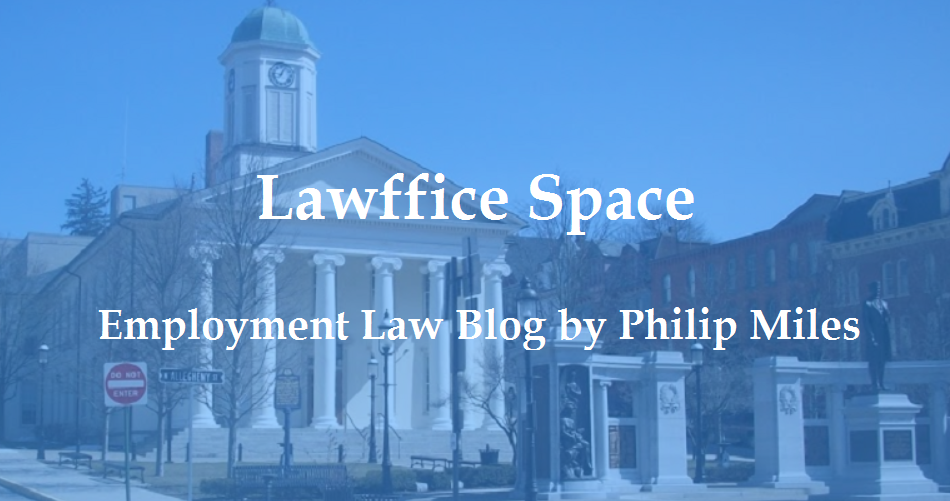
The employee was a licensed professional counselor (LPC) who was fired for refusing to include a female registered sex offender in group therapy with women who had been abused in the past. To bring a wrongful termination claim, an employee must tie their termination to "a clear mandate of public policy." As the Pennsylvania Superior Court explained:
In sum, an employer
(1) cannot require an employee to commit a crime,
(2) cannot prevent an employee from complying with a statutorily imposed duty, and
(3) cannot discharge an employee when [specifically] prohibited from doing so by statute.(quoting past precedent). The employee argued that her termination violated public policy as set forth in the ethical guidelines for LPCs (adopted as administrative guidelines in the "Pa. Code").
First, the bad news for wrongful termination claims. The Court held that none of the rules expressly prohibited placing sex offenders in therapy sessions with victims of sexual abuse. And, the Court's not going to allow a cause of action where a judgment call could arguably find a violation of the rule (for example, the rules require an LCP to select compatible group members "to the extent possible" - that's just not clear enough to create a cause of action here).
But, there was also some good news for wrongful termination claims. First, the Court refused to require a tie-in between the public policy and the employer-employee relationship:
Narrowing the wrongful discharge cause of action to encompass only those public policies that relate to the employer-employee relationship is unwarranted by precedent; would eviscerate public policy exceptions previously validated by this Court; and would thwart the purpose of the exception to the general at-will employment rule: the protection of clearly-established Pennsylvania public policy.And, the Court also recognized the possibility that the administrative rules governing certain professions could represent clear mandates of public policy for establishing a wrongful termination claim. On the latter point, I should note that the Court did not expressly make a determination - but the fact that they didn't outright reject the admin. code as a basis for a wrongful termination says something. There was also a dissenting opinion.
However, at the end of the day . . . the wrongful termination claim still lost. The Superior Court affirmed the trial court's dismissal of the plaintiff's complaint.

No comments:
Post a Comment